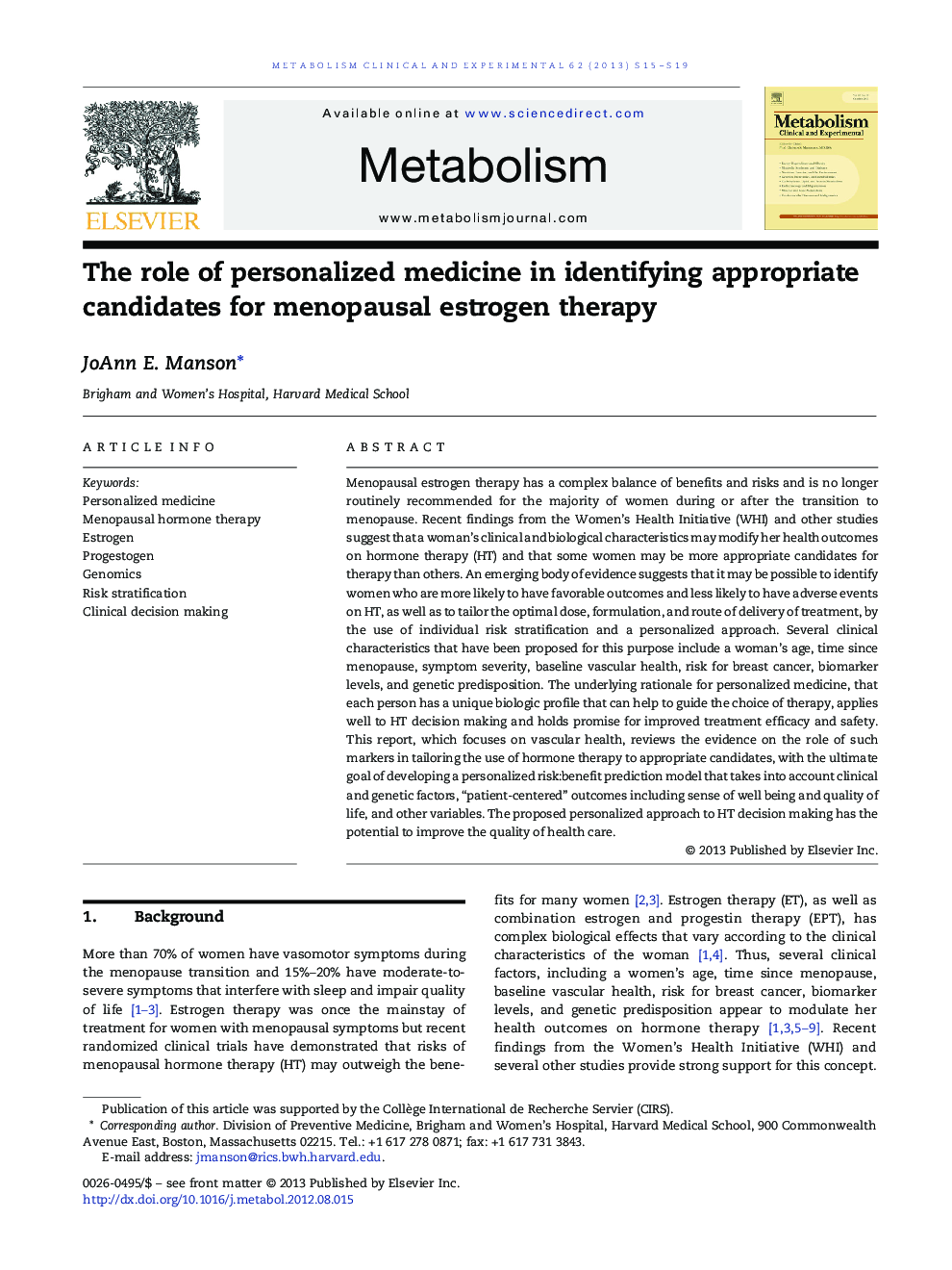| Article ID | Journal | Published Year | Pages | File Type |
|---|---|---|---|---|
| 2806042 | Metabolism | 2013 | 5 Pages |
Menopausal estrogen therapy has a complex balance of benefits and risks and is no longer routinely recommended for the majority of women during or after the transition to menopause. Recent findings from the Women's Health Initiative (WHI) and other studies suggest that a woman's clinical and biological characteristics may modify her health outcomes on hormone therapy (HT) and that some women may be more appropriate candidates for therapy than others. An emerging body of evidence suggests that it may be possible to identify women who are more likely to have favorable outcomes and less likely to have adverse events on HT, as well as to tailor the optimal dose, formulation, and route of delivery of treatment, by the use of individual risk stratification and a personalized approach. Several clinical characteristics that have been proposed for this purpose include a woman's age, time since menopause, symptom severity, baseline vascular health, risk for breast cancer, biomarker levels, and genetic predisposition. The underlying rationale for personalized medicine, that each person has a unique biologic profile that can help to guide the choice of therapy, applies well to HT decision making and holds promise for improved treatment efficacy and safety. This report, which focuses on vascular health, reviews the evidence on the role of such markers in tailoring the use of hormone therapy to appropriate candidates, with the ultimate goal of developing a personalized risk:benefit prediction model that takes into account clinical and genetic factors, “patient-centered” outcomes including sense of well being and quality of life, and other variables. The proposed personalized approach to HT decision making has the potential to improve the quality of health care.
